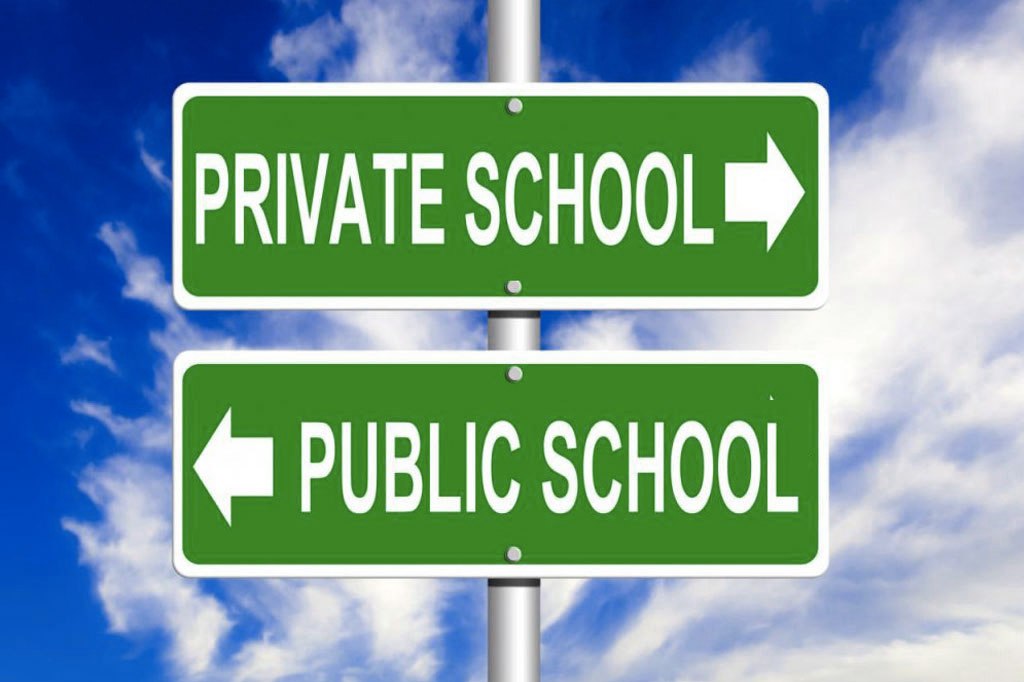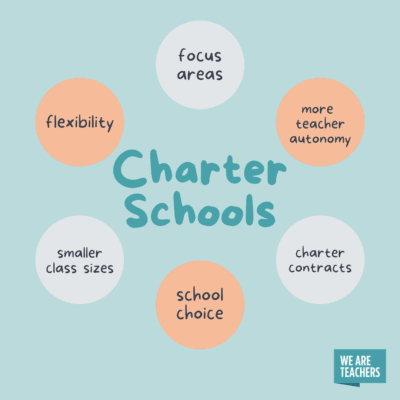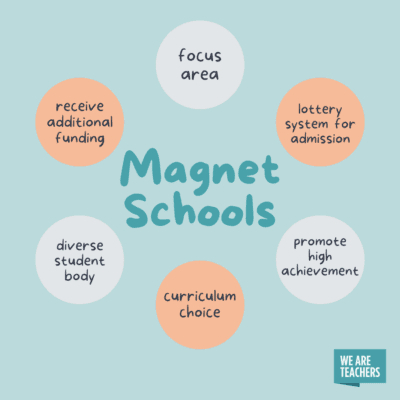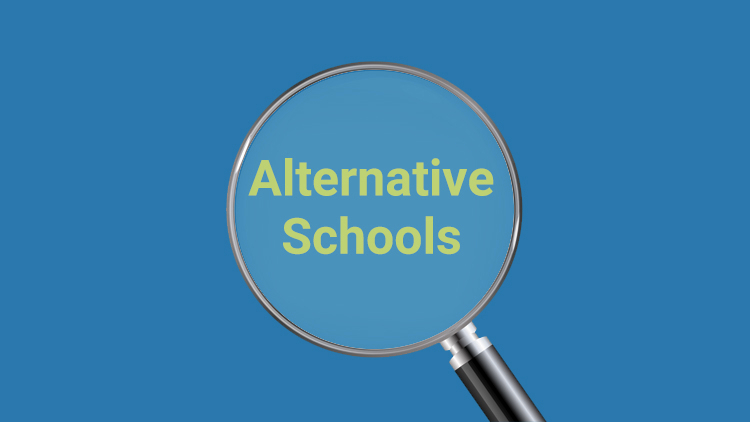Public education effectively serves many families, but it isn’t the perfect fit for everyone. Issues such as unfair treatment, bullying, and varying school quality drive an increasing number of families to seek alternatives to public schooling. As societal needs evolve, these alternatives provide diverse educational choices that cater to all students.
Math & ELA | PreK To Grade 5
Kids see fun.
You see real learning outcomes.
Watch your kids fall in love with math & reading through our scientifically designed curriculum.
Parents, try for free Teachers, use for free
In this blog, we will look at why these alternatives are worth considering, review some of the best options out there, and explain how to choose the right one for your child.
6 Best Alternatives to Public Schooling
1. Homeschooling

Homeschooling is a personalized educational approach in which parents act as educators and teach their children at home. This method allows for a tailored education that closely aligns with a child’s learning style, pace, and interests.
Potential Benefits:
- A customizable curriculum, a safe learning environment free from school-related pressures such as bullying and competition.
- The opportunity for parents to deeply involve themselves in their child’s educational journey.
- It also allows families to incorporate more practical, real-life experiences into learning, enhancing understanding and retention of knowledge.
If you are looking for a comprehensive homeschool program, SplashLearn stands out as a premier choice among alternative schooling options. It supports the foundational educational stages for children with a curriculum that includes math, reading, and early skills, all presented in a structured and adaptable format to any homeschooling approach. Here’s why SplashLearn is highly recommended:
- Comprehensive Curriculum: SplashLearn enriches children with vital educational skills. From early numeracy skills like number sense, addition, and subtraction to more complex topics such as fractions, algebra, and geometry in math, foundational to advanced reading, writing, grammar, vocabulary, and spelling skills.
- Engaging Content: The platform offers interactive learning tools such as games, coloring pages, songs, and puzzles. It also provides extensive printable worksheets to reinforce learning, ensuring that kids are entertained and deeply engaged with their education.
- Live Classes and Safe Interaction: SplashLearn ensures a dynamic and engaging learning environment that encourages exploration and deep understanding of subjects without peer pressure through live, interactive classes led by expert tutors in a fun, game-based format.
- Flexible and Adaptive Learning Path: SplashLearn’s curriculum is flexible, allowing you to adjust daily lessons to fit your schedules and modify the content to better suit your child’s progressing abilities and interests.
- Personalized Learning Experience: The platform’s adaptive technology adjusts the complexity of lessons based on your child’s interactions and achievements, ensuring that the educational content remains challenging yet accessible at all times.
- Extensive Resource Library: With over 15,000 educational resources at your disposal, SplashLearn stands as a comprehensive resource for all homeschooling requirements.
- Progress Tracking and Insights: Detailed reporting tools offer insights into your child’s progress and achievements, providing customized recommendations for future learning paths and keeping parents well-informed about their child’s educational journey.
- Cost-Effective with Free Trial: SplashLearn offers a free trial to get you started and significant annual discounts (50%-70%). Furthermore, a single account can accommodate up to three children, enhancing its value for family learning.
2. Private Schools

Private schools are funded through tuition fees and private donations rather than government funding. They often offer specialized curricula and may have a religious affiliation or a specific educational focus, such as the arts or sciences.
Enrollment Process: To enroll in a private school, families typically need to complete an application, participate in interviews, and sometimes, students must take entrance exams. The process can vary greatly from one school to another, so it’s important to contact the school directly for specific details.
Potential Benefits: Private schools are known for their high academic standards, smaller class sizes, and dedicated resources. These factors can provide a more personalized education experience, making them a solid option among traditional public school alternatives.
Related Reading: Homeschool vs Public School: 12 Tips on How to Choose One
3. Charter Schools

Charter schools are publicly funded but operate independently of the traditional public school system. They have more freedom to design curriculums and are often established with specific educational goals, such as improving math and science education or incorporating innovative teaching methods.
Enrollment Process: Charter schools typically require a simple application process. Because they are public, they do not charge tuition. Many charter schools use a lottery system if the number of applications exceeds the available spots.
Potential Benefits: Charter schools offer innovative education programs and often boast a curriculum that caters to specific interests or talents. This flexibility makes them appealing schooling alternatives for families seeking a more tailored education environment without the cost of private schooling.
4. Magnet Schools

Magnet schools are public schools with specialized courses or curriculums focusing on specific areas such as science, technology, or the arts. They aim to draw a diverse student body from various districts based on shared interests in these subjects.
Enrollment Process: Enrollment in magnet schools typically involves an application process that may include tests, auditions, or portfolio reviews, depending on the school’s focus area. Like charter schools, they might use a lottery system if applications exceed available spaces.
Potential Benefits: The specialized focus of magnet schools allows students to deeply explore specific subjects in a more enriched environment than traditional settings. This makes them appealing alternative schools for children with specific academic interests or talents.
5. Montessori Schools

Montessori schools are based on the educational philosophy developed by Dr. Maria Montessori. This philosophy emphasizes independent, student-led learning within a prepared environment that fosters natural growth and curiosity.
Enrollment Process: Parents looking to enroll their children in Montessori schools should expect to attend open houses and interviews as part of the application process. Some schools might also require observation sessions where the child spends time in the classroom.
Potential Benefits: The Montessori method encourages self-directed learning, critical thinking, and collaboration. This educational approach helps develop responsible, creative, and self-motivated learners, positioning it as a significant alternative to public schooling for parents interested in a child-centered educational model.
6. Military School
Military schools are educational institutions that incorporate military-style discipline and values. They focus on character development, leadership, and academic excellence within a structured environment.
Enrollment Process: Enrollment typically includes an application, interviews, and sometimes a physical fitness assessment. These schools often have stringent acceptance criteria to ensure that students are a good fit for the disciplined environment.
Potential Benefits: Military schools emphasize leadership development, self-discipline, and moral integrity. Students often benefit from a structured daily routine and rigorous academic standards, making these schools a robust alternative for families seeking a disciplined, values-based education.
How to Choose the Right Alternative for Your Kid?
Choosing the right educational path for your child is crucial. Here are some steps to help you find the best fit among the various alternatives:
- Assess Your Child’s Needs: Start by understanding your child’s learning style and specific educational needs. Does your child thrive in a structured environment or a more flexible setting? Do they need more individual attention or special resources? Identifying these factors will help you narrow down the most suitable schooling options.
- Consider Your Family’s Lifestyle: Your family’s daily routine, work commitments, and even extracurricular activities can influence the type of schooling that works best for your child. For example, if your family travels frequently, an online school or a homeschooling setup might be more appropriate than a traditional school setting.
- Research and Visit Schools: Once you have a shortlist of potential schools, do thorough research. Visit their websites, read reviews, and most importantly, visit the schools. Seeing the schools in person and meeting the staff can give you a better sense of whether the environment and teaching style will be a good fit for your child.
- Financial Considerations: Understand the cost implications of different schooling alternatives. Some options, like private schools, may require a significant financial investment, whereas charter and magnet schools offer specialized programs without tuition fees. Consider what you can realistically afford while exploring possible scholarships or financial aid.
- Long-term Educational Goals: Think about your child’s long-term academic and career goals. Choose a school that aligns with these goals and can provide the appropriate academic rigor and support. Whether it’s preparing for college or acquiring specific skills for a career, the right school should be able to cater to these future aspirations.
Related Reading: How to Choose Best School For Your Kid
Why Should You Explore Alternatives to Public Schooling?
- Customization of Learning: Alternatives to public education often offer personalized learning experiences that adjust to each child’s pace and interests. This means students can learn in a way that fits them best, helping them grasp concepts more effectively and stay engaged.
- Flexibility in Scheduling: Non-public school options usually offer more scheduling flexibility, which is great for families with unique schedules. Whether due to sports commitments, travel, or family needs, these alternatives to public schooling can make education fit into a family’s lifestyle, not the other way around.
- Smaller Student-to-Teacher Ratios: One of the biggest advantages of alternative educational settings is the smaller class sizes. Fewer students per teacher means more personalized attention and direct support, which can lead to better learning outcomes and understanding.
- Varied Educational Philosophies: Unlike traditional public schools, alternatives often embrace diverse educational philosophies. For example, Montessori schools focus on child-led learning, while Waldorf schools emphasize arts and creativity. These different approaches can better align with a child’s natural learning style.
- Special Needs Accommodation: Many alternative schools offer specialized programs that better serve students with special needs. These schools may have resources and trained staff designed to provide the right support, making education accessible and effective for all students.
Conclusion
Exploring alternatives to public schooling can open up new opportunities for a more tailored and enriching educational experience for your child. By carefully considering each option and how it aligns with your family’s needs and goals, you can make the best choice for your child’s future.
Related Reading: Types of Education for Kids: Formal, Informal & Non-formal
Frequently Asked Questions (FAQs)
What are the main differences between charter schools and private schools?
Charter schools are publicly funded but operate independently, often with a specific educational focus, and do not charge tuition. Private schools are funded through tuition and donations and may offer specialized or religious curriculums.
How do I know if homeschooling is the right choice for my child?
Consider whether your child’s learning style and your family’s lifestyle can adapt to homeschooling. It’s a good fit if you seek a highly customizable education and can commit the time to manage and deliver your child’s learning.
Can alternative schooling options improve my child's academic performance?
Many alternative schooling options provide specialized programs and smaller class sizes, which can cater to your child’s specific learning needs and potentially enhance academic performance. It’s important to choose a school that aligns well with your child’s learning style and needs.
























